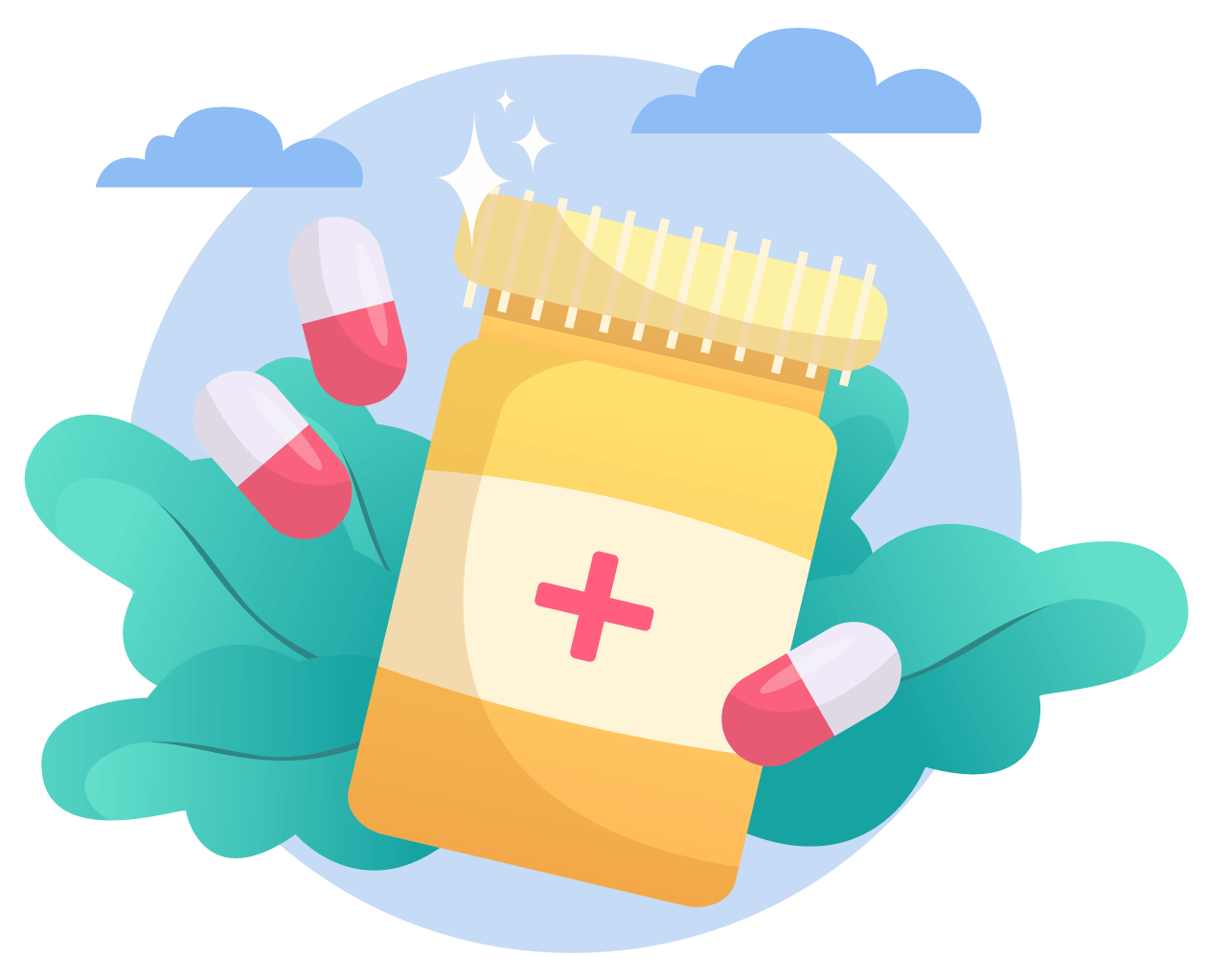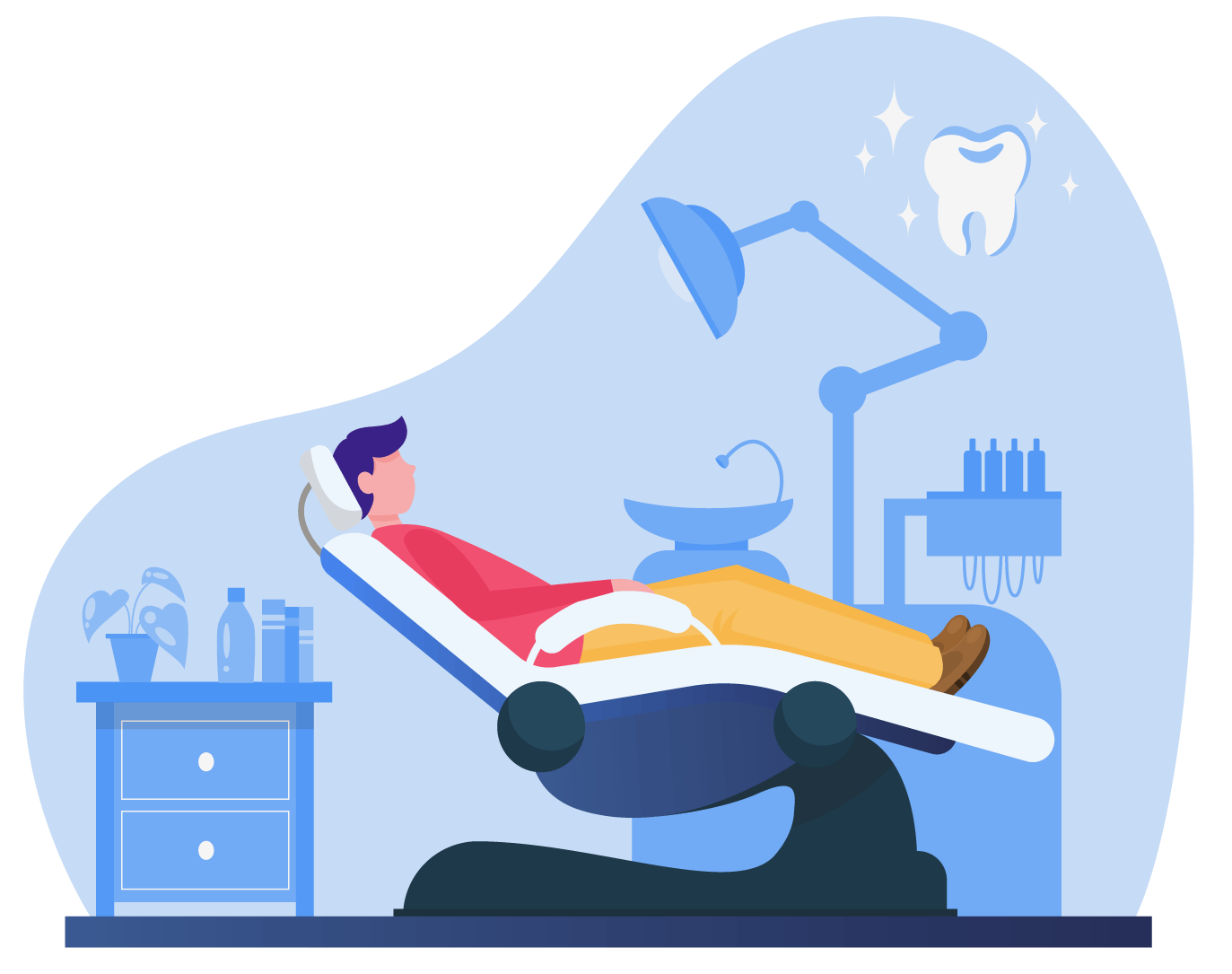
Pharmaceutical companies rely heavily on marketing to reach physicians, clinicians, and consumers. The average American spends an estimated $1,000 each year on pharmaceuticals, which makes marketing a key priority for the industry. Companies recognize the importance of product marketing for success in the pharma sector. Marketing can have a substantial impact on shareholder value and helps pharmaceutical companies identify and meet customer demands. Therefore, pharmaceutical marketers are highly successful.
Pharmaceutical Marketing Today: Focusing on Drug Discovery and Engaging Consumers
Despite the squeeze of cost control, regulatory restrictions, and global competition, for the marketing strategies are adapting for Pharma to focus on the user, not the drugs. Pharma companies are developing products that are tailored to patient’s needs, and engaging consumers with personalized marketing strategies. Here, the capabilities of a pharma ad agency play a pivotal role in crafting and executing innovative strategies to engage both healthcare professionals and consumers.
Pharmaceutical marketing is a booming industry, growing by leaps and bounds in the last two decades. Marketing spending in the pharmaceutical sector has increased by nearly 70%, now totaling around $30 billion. In today’s digital age, fewer and fewer HCPs are rep-accessible, and it’s estimated that the pharma industry spends over a billion dollars each year on unsuccessful attempts to see physicians. In this new world of patient advocacy, preventative care, and the need to demonstrate outcomes, companies must adapt their marketing strategies in order to keep up with the competition. This will ensure that these companies maintain a competitive edge and continue to enjoy success in the pharma industry.
Digital Marketing for Biotech Companies
In today's pharma marketing news, the landscape is evolving rapidly, with many pharmaceutical marketing companies in the USA adopting innovative strategies to promote their products. The go-to-market model pharma industry has taken a digital turn, focusing heavily on pharma tele-sales and other online channels to reach healthcare providers and patients alike. Digital marketing for biotech companies is becoming increasingly important, as these companies invest in cutting-edge technologies and platforms to stay competitive. As a result, both established and emerging players are now seeking partnerships with specialized marketing firms to tap into this newfound potential and maximize their brand presence in an ever-changing market.
The End of the One-Size-Fits-All Approach in Pharma Marketing
Companies should take advantage of the potential for using data to drive marketing decisions and personalize campaigns. By leveraging advanced analytics and automation, Pharma companies can gain insights into customer behavior and develop targeted strategies that effectively reach the right audiences at the right time.
This shift from traditional marketing strategies to tailored campaigns is a key factor in the success of Pharma companies in the future. With such a competitive and rapidly evolving industry, pharmaceutical companies need to adapt their strategies quickly to stay ahead of the competition. By understanding customer needs, leveraging data-driven insights, and focusing on personalized experiences, pharma companies can ensure their success in the industry and remain competitive for years to come.
Commercializing Pharmaceutical Products

The shift to value-based health care has arrived. Our fast-changing market demands more value than ever before from pharmaceutical manufacturers. In this new climate of value-based health care, cost efficiency and proven patient outcomes are essential for pharma companies to remain competitive. To meet these demands, pharmaceutical companies must explore how to commercialize a pharmaceutical product effectively, leveraging innovative strategies such as mobile communications and other online platforms for marketing strategy and diagnosis. While the regulatory environment surrounding pharmaceutical marketing strategy is challenging, it does not have to hinder providing value-based health care. Companies can create tailored campaigns that are less reliant on heavy regulation and more focused on relationship building. This will enable them to reach their target patients accurately and ethically.
Changing the Consumer Experience
We are on the edge of a generational transition – by 2050, 2 billion individuals across the globe will be over 60 years old. In America alone, seniors aged 65 and up may double to 100 million in 2060! This sharp increase in population has tremendous implications for industries such as healthcare; with an abundance of elderly users joining the prescription drug treatment market by 2024 it is expected to hit $1.2 trillion dollars - proving that demographics can indeed dictate change.
A Multi-Disciplinary Approach to Healthcare
With the healthcare industry growing rapidly, it is essential for pharmaceutical companies to focus on providing value to their customers and partners. This means delivering cost savings, achieving proven patient outcomes, and contributing positively to patient satisfaction. Healthcare providers, payers, and patients are increasingly looking for value-based solutions that consider the wider implications of a particular therapy or medication. Companies that can meet these needs will find success in the 21st-century healthcare system. Additionally, those companies that provide access to innovative technologies and cutting-edge data analytics that deliver the personalized outcomes demanded by physicians, payers, and patients will be at the forefront of this new era of valuing health care.
The Digitalization of Pharmaceutical Marketing
The traditional approach to pharmaceutical marketing is no longer effective in the current landscape of patient and provider control, values-based outcomes, and specialized information targeting. To remain competitive and build relationships with customers, pharmaceutical companies must embrace digital marketing strategies. Digitalization of pharmaceutical marketing will require specialized software, data analytics tools, and a refocusing of traditional tactics such as sales visits in favor of an online patient experience. For example, companies could utilize automated lead-generation campaigns to capture potential customers or utilize AI-powered information-gathering tools to deliver personalized drug information tailored to individual needs. And as of 2024, the Healthcare and insurance have among the highest cost per lead. Specialized platforms such as e-learning portals or marketing automation systems can be used to update and distribute drug information faster, more accurately, and with greater efficiency. Doing so will enable pharmaceutical companies to keep up with the ever-evolving healthcare industry and extend their reach beyond traditional channels.
The advent of personalized, omnichannel marketing
To be successful with specialty marketing strategies to smaller segments with custom treatment offerings, an investment in technologies to leverage the power of big data is a prerequisite. Doing so will help marketers get the right message to the right people at the right time, ensuring that appropriate and effective treatments reach those who need them most. Furthermore, pharmaceutical companies must also be well-versed in developing relationships with partners such as medical providers and insurance companies in order to identify which treatments are eligible for insurance coverage. Such foresight can help companies build a strong foundation of trust with customers and lead to better customer outcomes. Ultimately, successful marketing strategies will depend on leveraging the most up-to-date technologies for effectively collecting and analyzing data about consumers to deliver personalized treatments that meet their needs, preferences, and lifestyles. With this approach, pharmaceutical companies can create a more positive consumer experience and promote long-term loyalty.
Pharmaceutical Branding Strategies
Pharmaceutical branding strategies are essential for successful drug launches and long-term growth in the industry. Pharmaceutical companies must identify the unique needs of their target market, differentiate their products from competitors, and create effective messaging to reach them. To do this effectively, pharmaceutical companies should develop a comprehensive brand strategy with an integrated approach to communications across all channels. This strategy should consider both traditional and digital marketing tactics such as TV, print, radio, outdoor advertising, search engine optimization (SEO), and social media. The goal is for the brand to resonate with consumers through consistent messaging that positions it well against competitors. Additionally, each campaign should be designed to drive engagement across channels and build relationships with key stakeholders. Finally, pharmaceutical companies should use data analytics to track the success of their campaigns and refine their strategies as needed. With a well-crafted brand strategy, pharmaceutical companies can effectively reach their target audiences and drive long-term growth.
Corporate branding in the pharmaceutical industry is an integral component of a company's marketing strategy. This sector deals with life-changing and life-saving products, thus making it imperative to build a strong and trustworthy brand. The successful pharmaceutical corporations employ strategic corporate branding to differentiate themselves in the competitive marketplace, fostering trust and credibility among healthcare providers and patients alike. This branding also communicates the company's core values, vision, and commitment to scientific excellence, patient safety, and high-quality standards. It plays a crucial role in establishing a robust reputation, which in turn, greatly influences product acceptance and overall business success.
Disruptive Technologies in Pharma Marketing

A well-thought-out strategy that combines traditional and digital marketing can help bridge the gap between the patient and provider worlds, as long as it is patient-centric. It should be based on data analytics to ensure its efficacy. Targeted campaigns, driven by a combination of predictive analytics and deep customer insights, will be more effective than generic messaging.
Unlimited Possibilities with Personalization and Segmentation

By leveraging these technologies, pharmaceutical companies can increase the value they provide to patients and keep them engaged in their health care. This is key for a successful pharma marketing strategy. With thoughtful integration of digital technologies, personalization, and segmentation, the possibilities are only limited by imagination. The best part? Pharmaceutical markets now have tools that allow them to customize, personalize, and segment at a level never before seen in the industry. This will provide a competitive advantage for companies that adopt these new strategies. Those who are able to understand their customers’ needs and tailor content specifically for them will be miles ahead of those who stick with old-school marketing strategy tactics from the past. With the right combination of technologies, content, and strategies, pharma marketers can ensure that they are providing real value to their customers.
Pharma Ad Strategy
In the rapidly evolving pharmaceutical industry, employing an effective pharma ad strategy is vital. One approach that's gaining traction is market mix modeling pharma, a statistical analysis method that quantifies the impact of various marketing inputs on sales and ROI. By understanding how different marketing elements contribute to business outcomes, companies can refine their strategies for optimal results. Furthermore, pharma promotional optimization is crucial in this process. By assessing the effectiveness of various promotional activities and adjusting them based on data-driven insights, pharmaceutical companies can maximize the impact of their marketing investments, driving growth and enhancing customer engagement.
Social Marketing: A New Approach

Social marketing in the pharmaceutical space is the practice of using digital marketing platforms such as social media networks to target, engage and build relationships with potential customers. By utilizing social marketing, pharma companies can gain insight into how to engage with this group and tailor their strategies accordingly. This new approach can help create an environment where individuals are better informed about the medicines they take and make more informed choices. Through social media, pharmaceutical companies can create campaigns to reach their target audience, build relationships with influencers, drive engagement by responding to customer comments and questions, launch promotions and offer discounts, track the success of campaigns through analytics and reporting tools, and measure ROI from different channels.
Pharma Go-To-Market Strategy

As patients become increasingly confident in managing their own health, it's important for pharmaceutical companies to step up and deliver the information they need. But this shift presents a prime opportunity as well: through virtual care visits, patient portals, and other online resources – knowledge that was once siloed is now an open gateway for digital marketing strategy opportunities – allowing Pharma firms to bring cutting-edge engagement strategies on par with those found across consumer goods industries!
As consumers become more aware of their data privacy, the pharmaceutical industry is facing stricter regulations. To keep up with this changing landscape, it's important for them to look at other industries that have already navigated similar challenges - like tech giants Google, Apple and Facebook who are experts in collecting personal information and delivering targeted ads successfully. Armed with a comprehensive understanding of consumer protection norms from multiple sectors, Pharma companies can stay ahead by making the protection of customer privacy a top priority.
What are the Three Methods of Pharmaceutical Marketing?

The three main methods of pharmaceutical marketing are direct-to-consumer advertising, physician detailing, and managed markets solutions. Direct-to-consumer advertising involves television, radio, and print ads that target the public in an effort to create awareness of a brand or drug. Physician detailing is the practice of sending trained sales representatives to physicians’ offices to discuss the uses, benefits, and risks of a given drug. Finally, managed markets solutions involve engaging with payers such as insurers and pharmacy benefit managers in order to negotiate reimbursement for drugs. Each method requires a different approach and has its own advantages and disadvantages. However, when used correctly, these three methods of pharmaceutical marketing strategy can help maximize sales, increase brand recognition, and improve patient outcomes.
What Does Pharmaceutical Marketing Entail?

Pharmaceutical marketing is the process of creating, communicating, delivering, and exchanging offerings that have value for clients or customers. It involves understanding customer needs, developing strategies to meet those needs, and employing tactics to reach a desired target audience. Pharmaceutical marketing also entails engaging with stakeholders including healthcare professionals, consumers, and payers by leveraging digital channels such as websites, search engine optimization (SEO), mobile marketing, and social media. Companies use a combination of tactics such as direct-to-consumer advertising, sales force training, scientific events, and conferences to reach the right customers at the right time with appropriate messages. By understanding customer needs and tailoring messaging appropriately, pharmaceutical companies can create sustainable relationships that foster better patient outcomes and increased sales.
Building a Pharmaceuticals Marketing Plan

To build a successful pharmaceutical marketing plan, it is important to consider the needs of the target audience and devise strategies specifically tailored to them. This means first understanding their wants, needs, and interests. Then you can create campaigns that deliver meaningful messages in an engaging manner to maximize success. Additionally, it is important to leverage the latest technology-driven channels to reach target customers more effectively. Use analytics to measure how successful your campaigns are and adjust them as needed. With the right tactics, a well-crafted pharmaceuticals marketing plan can help increase sales and drive growth for your business.
Finally, keep in mind that regulations are constantly changing, so it is essential to stay on top of industry compliance and ensure that all marketing efforts adhere to the current laws. This will minimize risks and help protect your business from potential legal issues. With a well-crafted pharmaceuticals marketing plan in place, you can leverage the full potential of this lucrative industry.
If you're in the pharmaceutical industry, you know how crucial it is to have a solid marketing plan for your company. The pharmaceutical marketing mix plays a significant role in achieving your marketing objectives. To create an effective marketing plan for a pharmaceutical company, you need to consider various factors, such as the target audience, market trends, and the competitive landscape. To ensure your marketing efforts are successful, you may want to consider some pharma marketing tips, such as understanding your customers' needs and preferences, keeping up with the latest regulations, and leveraging digital marketing strategies. With thorough pharmaceutical marketing planning, you can develop a comprehensive marketing plan that aligns with your business goals and helps you stand out in the industry.
In the competitive landscape of the pharmaceutical industry, it's essential for pharma brands to have effective promotion ideas that can reach their target audience. While traditional marketing tactics like print ads and sales reps still have their place, the rise of digital media has opened up new opportunities for pharma inbound marketing. By leveraging the power of content marketing, search engine optimization, and social media, pharmaceutical inbound marketing can attract, engage, and convert potential customers in a more personalized and cost-effective way. By embracing these modern strategies, pharma brands can gain a competitive advantage and build lasting relationships with their customers.
Pharmaceutical Advertising Spending 2022
Since 2018, the pharmaceutical industry in the United States has maintained a robust financial commitment to advertising, with yearly expenditures exceeding $6.5 billion. Remarkably, pharmaceuticals rank as the fourth most significant contributor to TV advertising, following closely behind sectors such as retail, financial and real estate services, and technology.
Despite the constant influx of billions into pharmaceutical television advertisements, there has been a relatively static growth in total spending, with only a slight increase of about one percent in 2022 compared to the previous year. This trend may be attributed to evolving marketing dynamics, particularly the gradual transition of funds from conventional TV advertising to digital marketing.
Nevertheless, the pharmaceutical industry remains somewhat reserved about completely severing ties with television advertisements. Industry experts believe that there remains a viable market for TV ads, citing the continuous reliance of older adults, a critical demographic for various drugs, on traditional television. Despite the increasing prominence of digital platforms, this age group seems less comfortable with them, hence the continued need for TV-based promotions.
In 2021, MediaRadar reported that traditional TV ads made up 70 percent of pharmaceutical advertising spend, indicating a 5 percent decrease from the preceding year. Rick Bruner, who heads the Insights and Analytics department at Standard Media Index (SMI), noted that the pharmaceutical sector has been slower than other industries in reducing its reliance on linear TV.
According to an SMI report, only six percent of the total pharmaceutical budget was transferred from TV to digital platforms in recent times. Regarding the digital realm, Bruner indicated that the shift has been somewhat less noticeable. In comparison between the first halves of 2021 and 2022, digital display ads constituted 42 percent of the mix, digital video 30 percent, and search ads 25 percent; a rather consistent allocation over the year.
In 2022, the top ten pharmaceutical advertisers collectively spent $1.68 billion on TV advertisements, a slight increase from the $1.61 billion in 2021. The highest advertising expenditure in that year was for immunology drugs for autoimmune conditions such as arthritis and eczema, along with four type 2 diabetes drugs.
Sanofi and Regeneron were initially poised to be the top TV advertising spenders in 2022 for their drug Dupixent. However, AbbVie heightened its TV ad campaigns for arthritis and eczema inhibitor Rinvoq in the latter part of the year. The company spent a whopping $315.8 million on TV ads, doling out a substantial $97 million in the final two months of 2022 alone, according to iSpot.TV.
Despite being slightly outspent by AbbVie, Sanofi and Regeneron's drug Dupixent remained a strong contender with a $305.9 million expenditure on TV ads. Skyrizi, Rinvoq, and Dupixent were the most prominent pharmaceutical brands of the year in terms of airtime, featuring significantly on Fox News, MSNBC, and CNN, with a noticeable surge leading up to the 2022 midterm elections.
Navigating the Pharmaceutical Industry with a Proficient HCP Advertising Agency: A Key to Successful Pharma Marketing Assessment
In the complex and dynamic world of the pharmaceutical industry, navigating marketing strategies can be a daunting task. This is where the value of an adept 'HCP advertising agency' and the insight provided by a comprehensive 'pharma marketing assessment' comes to play.
The Need for a Specialized Advertising Agency
Healthcare Professionals (HCPs) are a crucial audience for pharmaceutical companies, given their influence on patient treatment decisions. Hence, the need for an 'HCP advertising agency' cannot be overstated. A proficient HCP advertising agency understands the intricacies of the medical field, is abreast with regulatory constraints, and can effectively communicate with healthcare professionals.
A specialized agency helps tailor messaging to HCPs, ensuring that the information about the latest drugs, treatments, and medical devices is communicated in a way that aligns with their knowledge and practice. This is where 'pharmaceutical internet marketing agencies' step in, harnessing the power of digital channels to ensure that your message reaches its intended audience.
The Rising Influence of Specialized Pharmaceutical Marketing Agencies
In the pharmaceutical industry, effective marketing strategies play a critical role in determining a product's success. With the advent of 'pharma marketing', companies now have the opportunity to leverage strategic planning and innovative approaches to promote their offerings. A specialized 'pharma manufacturing marketing agency' can provide invaluable expertise, navigating the complex regulations and unique challenges of the industry to create impactful marketing campaigns. These agencies tap into robust 'pharma marketing networks' to facilitate collaboration, information sharing, and audience engagement. Furthermore, they offer comprehensive 'pharmaceutical marketing solutions', ensuring that their clients effectively reach healthcare professionals, patients, and other stakeholders. These solutions often encompass multichannel strategies, data-driven decision making, and customer relationship management, driving product awareness and adoption while maintaining compliance with industry rules and regulations.
The Role of a Pharmaceutical Internet Marketing Agency
In today's digital age, a 'pharmaceutical internet marketing agency' holds the keys to reaching wider audiences. These agencies possess the expertise to handle SEO, content marketing, social media advertising, email marketing, and more. They apply their expertise to increase the visibility of pharmaceutical products, thereby creating a significant impact on your brand's reach and visibility.
A competent pharmaceutical internet marketing agency plays a crucial role in understanding and reaching the target audience, collecting and analyzing data to inform strategy, and optimizing campaigns for the best return on investment.
Pharma Marketing Assessment - The Path to Success
The significance of 'pharma marketing assessment' in the strategy planning phase is paramount. It involves analyzing and understanding market trends, customer behavior, competitor strategies, and other crucial elements. The insights gained from a thorough marketing assessment guide the development of a robust, flexible, and effective marketing strategy that aligns with the business goals of a pharmaceutical company.
Navigating Pharmaceutical Marketing with the 7 Ps
Lastly, when it comes to 'pharmaceutical marketing', the application of the '7 Ps' — product, price, place, promotion, people, process, and physical evidence — offers a comprehensive framework for success. A comprehensive marketing strategy that effectively utilizes the 7 Ps ensures that the product meets the needs of customers (product), is priced correctly (price), is available where your customers need it (place), and is promoted effectively (promotion). Furthermore, having the right people to deliver the service (people), efficient processes for providing your product or service (process), and being able to show physical evidence of your product or service (physical evidence) are all crucial for marketing success.
In conclusion, the collaboration with a proficient HCP advertising agency, the use of a pharmaceutical internet marketing agency's expertise, a thorough pharma marketing assessment, and a well-rounded marketing strategy following the 7 Ps, are key to successfully navigating the ever-evolving pharmaceutical industry.
Biopharma Marketing
The convergence of biopharma and technology has revolutionized the healthcare industry, creating a need for fresh, innovative approaches to advertising and marketing. In this context, an effective pharma commercial strategy plays a pivotal role in propelling biopharma firms towards success in an increasingly competitive landscape.
Biopharma advertising and marketing have evolved considerably, given the rise of digital platforms and increased regulatory scrutiny. It is essential to create compelling narratives around the medical breakthroughs achieved by biopharma companies, highlighting their impact on enhancing patient outcomes and improving healthcare quality. Moreover, marketing efforts need to be multi-channel and customer-centric, integrating various platforms such as websites, social media, email marketing, webinars, virtual events, and more.
As for the pharma commercial strategy, it should prioritize the following key aspects:
- Patient Centricity: The strategy should be designed around the needs of the patient. This includes understanding patient journeys, integrating patient voices into strategy formulation, and designing solutions that meet their unique needs and preferences. Patient-centric approaches improve patient engagement, satisfaction, and ultimately, health outcomes.
- Digital Transformation: Digital technologies can enhance the reach and impact of biopharma marketing campaigns. The use of AI and ML in predictive analytics can provide insights into customer behavior, leading to more personalized marketing efforts. Additionally, technologies like augmented reality (AR) and virtual reality (VR) can be utilized to create engaging and immersive experiences for healthcare professionals and patients.
- Market Access: In the ever-changing healthcare environment, the ability to gain and maintain market access is crucial. It requires understanding the complexities of healthcare systems, payers, providers, and patients. Pricing strategies, demonstrating the value of new therapies to payers, and ensuring regulatory compliance are crucial components of this effort.
- Brand Building: Building a strong brand is a long-term investment. It involves establishing a reputation for quality, innovation, and patient-centricity. A well-defined brand can help differentiate from competitors and foster trust and loyalty among healthcare providers and patients.
- Data-driven Decision Making: A successful pharma commercial strategy is underpinned by data-driven decision-making. Harnessing the power of big data and analytics can provide valuable insights into market trends, customer preferences, and competitive landscape. These insights can inform strategy formulation and ensure alignment with market realities.
How to Market a Pharmaceutical product
When marketing a pharmaceutical product, it is important to leverage the right channels and strategies. A successful strategy should include an approach that combines both digital and traditional mediums. It is important to create a presence on social media platforms such as Facebook, Instagram, and Twitter where consumers are actively engaged in dialogue about health topics. Additionally, utilizing email campaigns, banner ads, direct mailers, and radio/TV advertisements can be effective for reaching an even larger audience. Finally, it is important to invest in market research to gain a better understanding of customer needs and preferences when developing marketing strategy plans. With the right combination of strategies and channels, pharmaceutical companies can create successful marketing campaigns that reach their target audiences and generate strong ROI. Learn more about How to Create Engaging Instagram Videos: Tips & Tricks for Marketers.
Marketing to Doctors versus Marketing to Patients: Differences & Similarities
The main difference between a marketing strategy to doctors and patients is in the target audience. Doctors are trained professional health care providers that require specific knowledge about a product before they can recommend it, while patients usually have less information and rely more on their doctor's recommendation. Despite these differences, both audiences need to be informed of the benefits of a product and its potential risks. For both groups, the message must be tailored to their needs and understanding, as well as address any concerns or questions they may have. Marketing to these audiences requires an understanding of both the medical professional's and the patient's perspectives in order to ensure effective communication. Ultimately, regardless of who is being marketed to, the goal remains the same: provide information in a meaningful way to encourage informed decision-making.
Taking a Closer Look – How Big is the Pharma Industry?
The pharmaceutical industry is one of the largest industries in the world, valued at $1.25 trillion globally. It is estimated that drugs account for 10% of global health expenditures and 16% of total healthcare spending in the US alone. There are over 3,000 companies involved in research and development (R&D) activities related to developing and marketing drugs, from small biotechnology startups to large pharmaceutical companies. The industry is highly competitive and has seen major advances in recent years due to the emergence of new technologies such as gene editing and antibody therapies. With an ever-growing demand for effective treatments, the pharmaceutical industry will remain a major player in the global economy.
Set Some Key Performance Indicators (KPIs)
Before you launch a marketing campaign it's important to set some key performance indicators (KPIs) that will help you gauge the effectiveness of your plan. Examples of KPIs include cost per lead and sales volume for a particular product, or overall customer satisfaction ratings. By setting these up correctly and tracking them over time, you can ensure that you're making progress in the right direction.
Pharma Email Marketing
If you're in the pharmaceutical industry and looking for ways to promote your products and services, a pharma email marketing agency may be just what you need. Such agencies specialize in creating and implementing targeted email campaigns that can reach your desired audience effectively. They have a deep understanding of the regulations and guidelines that apply to pharmaceutical marketing and can help you navigate those challenges. With their expertise, a pharma email marketing agency can help you craft compelling messages, design eye-catching visuals, and track campaign performance, all while ensuring compliance with industry regulations. By partnering with a pharma email marketing agency, you can maximize your marketing efforts and see a significant return on investment.
Marketing to HCPs

Pharmaceutical companies must understand the customer journey of healthcare professionals (HCPs) to create effective and meaningful marketing strategies. A key component of this strategy is understanding what motivates HCPs in their decision-making processes. Companies must have a deep understanding of the needs of physicians and be able to provide value-added services to gain loyalty. To do this, companies must employ a multi-channel approach that includes digital and physical marketing efforts. Companies should also provide educational materials to HCPs so they can stay up to date with the latest developments in their field of practice. By understanding and responding to the needs of HCPs, pharmaceutical companies can more effectively engage with them and drive better patient outcomes.
Marketing to Patients
- Personalized — Marketing strategy campaigns should be tailored to meet the needs and wants of each patient.
- Engaging — By creating content that engages with their emotions, clinically relevant information can be communicated more effectively.
- Accessible — Ensure that your website is available on all platforms, devices, and browsers for maximum reach
How Pharma Marketers Think About Marketing to Doctors and Patients
They must understand customer behavior and design their strategies based on the needs of both physicians and patients. This means that pharma marketers must have a comprehensive, creative approach to marketing that includes identifying the appropriate audience and knowing their differences. A successful strategy should also include analyzing consumer trends, understanding customer preferences, crafting relevant messaging, setting key performance indicators (KPIs), and measuring progress. By following these steps, pharmaceutical companies can create effective marketing plans that reach both doctors and patients. Finally, pharma marketers should be open to new ideas and technology to stay competitive in the industry. This means using digital media platforms such as social media, blogs, influencers, and search engine marketing to reach target audiences. By combining traditional and contemporary methods, pharmaceutical companies can ensure that their marketing efforts will be successful in the long run.
The Opportunity
The opportunity for pharmaceutical companies to engage with patients is huge. By providing holistic health solutions beyond drugs, using behavioral insights to drive how they market specific products and delivering the right information through the appropriate channels, pharma firms can become visible and active partners in consumers’ management of their health. This kind of engagement requires thoughtful consideration of regulatory risk, but the rewards to those companies that embrace it can be immense. By utilizing emerging technologies, pharma firms can capitalize on a fast-evolving landscape and establish themselves as trusted partners in customers’ home healthcare journeys.


